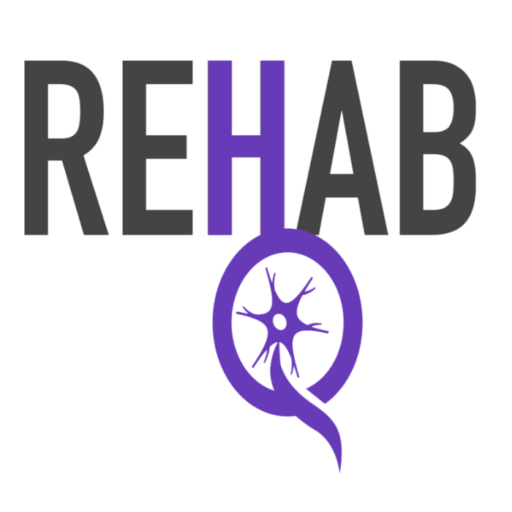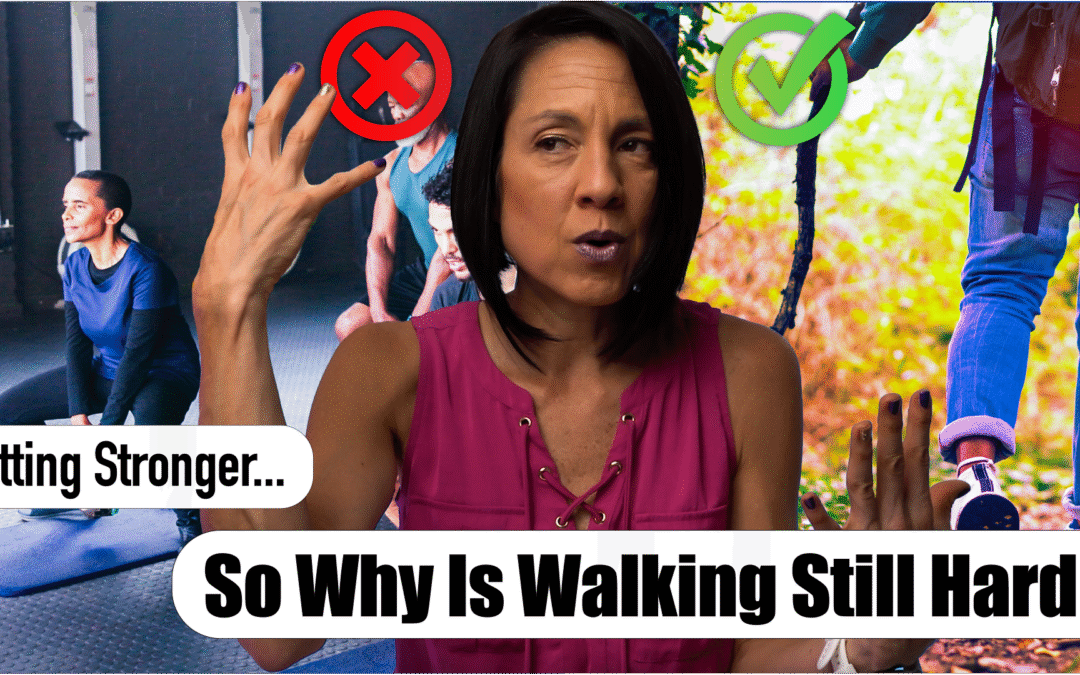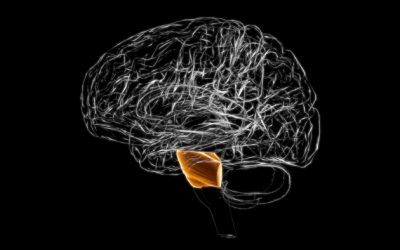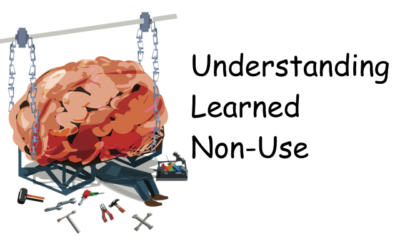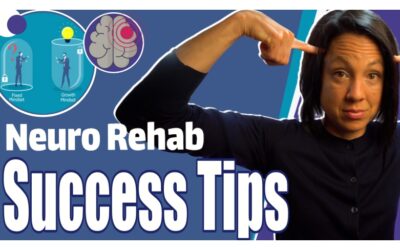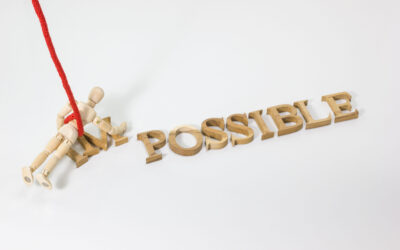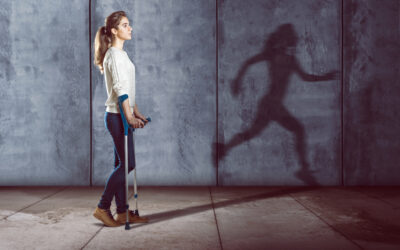Stroke Recovery Tips: When Exercises Don’t Seem to Work
Is it possible to be making progress after a stroke or neurologic injury and still feel like your movement is getting stiffer, heavier or just plain harder?
Absolutely. And let me tell you, it is one of the most frustrating things I see in recovery.
So why does this happen? Why can you be “getting stronger” but feel like your movement quality is getting worse? And more importantly, how do you measure progress in a way that actually helps you get better?
Strength vs. Motor Control – They’re Not the Same Thing
A common frustration I hear:
“I feel stronger, but my walking feels heavier.”
“Some days my leg won’t move at all.”
“I fatigue so quickly, even though I know I’m improving.”
This all comes down to understanding the difference between strength and motor control.
When you’ve had a stroke, it’s not that your muscles are simply “weak.” The problem is that the operating system, your brain’s code that controls movement has been damaged.
Think of your brain like a computer. Your muscles are the keyboard and they still work. But the hard drive that runs the programs? That’s where the damage is. When a stroke wipes out part of the “code,” your muscles can’t execute normal movement patterns anymore.
So what do most people do? They fall back on what they know: strengthen, strengthen, strengthen. But strengthening alone often reinforces abnormal movement patterns (like spasticity or those stiff, locked movements). And the more you push into those, the more your brain rewires around them. We call that negative neuroplasticity.
So What Can You Do?
Focus on Motor Control
Here are some strategies I use with my patients to turn all that effort into quality movement that feels better and translates into daily life.
1. Sensory Input Matters
Things like tapping, rubbing, vibration, or even just moving the arm or leg passively, these all remind your brain: “Hey, there’s a limb here, pay attention!”
It’s like reintroducing your brain to your body again.
2. Prioritize Quality Over Quantity
Don’t just celebrate movement for movement’s sake. Watch how it’s moving.
If your arm rotates in oddly when you lift it or your hand closes with your thumb tucked, stop and adjust. Reinforcing abnormal patterns makes them harder to break later.
3. Break Skills Down
Walking is a perfect example. Instead of endless squats and lunges, focus on the exact part of walking that’s giving you trouble.
- Practice weight-bearing without locking your knee.
- Practice swinging the leg without relying on abnormal patterns.
- Practice lifting your ankle with your knee straight.
This helps rebuild control, not just strength.
But Also… Don’t Forget to Just Walk
Sometimes, the best thing you can do is the obvious: walk more.
I see so many people get caught up in finding the “perfect exercise” when what they really need is more time on their feet.
Just like toddlers, they don’t get drills, they just keep practicing until it clicks.
The Big Takeaway
Feeling like your movement is “worse” while you’re working hard can actually be a sign that your brain is still figuring things out. The key is shifting your focus from strength alone to motor control, and making sure the movements you’re practicing are high-quality and moving you closer to normal function.
And if you want more structure and guidance on how to do this in your own recovery, that’s exactly what we’ve built inside our Rehab HQ membership program. You get access to tools, exercises, and step-by-step guidance so you can take full ownership of your rehab, on your own terms.
You can learn more or sign up here.
I hope this helps connect some dots for you.
Remember: Progress isn’t always a straight line, and sometimes “worse” movement is just part of the path to better.
Articles you may be interested in
Pontine Stroke: Everything you need to know
https://youtu.be/bynfAyJNM_8 A Pontine Stroke is commonly referred to as a pontine CVA or pontine cerebrovascular accident. It is an ischemic stroke that affects a region in the brain stem known as the pons. Not sure why this is important? The pons communicates...
The Courage To Continue….
A neurologic injury can have a dramatic impact on every aspect of life. Some lose the ability to speak, walk, hear, see, bath, groom, write, type, eat, and the list goes on. Yeah, a real “pickle”. So, the logical conclusion would be that someone in such a situation...
Understanding Learned Non-Use
https://youtu.be/iLo0j4aC44I Do you feel like you have plateaued? What I mean is, has your arm and leg movement recovery slowed to a crawl? Or maybe progress has stopped altogether? The common belief is that someone loses the ability to move because that part...
Success Tips In Neuro Rehab
I have good news and bad news. The good news is you have tons of potential for regaining more of your mobility back. The bad news is, some of you will never get there. The reality is, that some of you have gotten as far as you will ever get. And it has nothing to do...
Reframing Adversity
Is it possible to reframe adversity? And if so, what's the point? I mean, sucky situations.....well, suck. Am I right? What if I told you it didn't have to be that way? That there is a way to reframe your adversity into something more. Possibly even...
Finding your SUPERPOWER
Are you unknowingly giving away your power? I hate to admit it, but I can be guilty of this. I am quick to justify why I am not making progress toward a goal. Bad circumstances, lack of resources, not enough experience….oh, and my favorite…..genetics. My parents were...
Keep Going…..
"“I’m not going to get somewhere and say, ‘OK, I’m done.’ Success is never final; I’ll just keep on going. The same way as failure never being fatal. Just keep going. I’m going to the stars and then past them." - Connor McGregor "I'm going to the stars and then...
Miracles….”Fact” or “Fiction”?
"Miracles happen everyday. change your perception of what a miracle is and you will see them all around you." - Jon Bon Jovi Are "miracles" unjustly crucified? I know Jon Bon Jovi, might not be considered the "thought leader" of the 21st century. However, I think he...
How full is it??
"It's better to be an optimist who is sometimes wrong than a pessimist who is always right." -Unknown There is so much about the brain that we don't know. With that said, we know even less when it comes to an "injured brain". The good news is that we are learning...
How to become a “high achiever” in Neuro Rehab
There are "high achievers" in every industry. Including in neuro rehab. I consider these the "outliers". The ones who did what others couldn't. They recover more movement than expected. High achievers have a different gear. And truth be told, it is not one that I...
